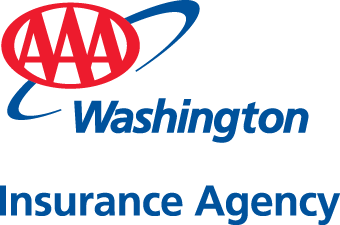Expert Advice for Effective Spring Cleaning
We have a unique set of elements to deal with when spring cleaning in the Pacific Northwest, from invasive insects to intrusive water — to dark days that sap our motivation. To help us make the best use of our time, minds and space, local experts offer their advice for sorting and scrubbing our homes and garages.
Getting Started
The key is to prepare mentally, starting by identifying areas and projects: cleaning drapes, washing sinks or changing old batteries.
“Then put it all on paper so that it looks manageable, decide on the order that you plan to tackle it — it’s your preference — and make sure to schedule it out on a calendar in doable increments,” says Seattle-based clinical psychologist Wallace Wilkins.
To make the project seem small, you might plan a 15-minute block for wiping living room surfaces, even if the task at hand requires more time.
“Often once you’re in the act, you’ll want to keep going for longer,” Wilkins says. “If not, simply schedule additional 15-minute increments on the calendar until the project is complete.”
If you’re cleaning with others, let each person pick the task that best suits them (such as reorganizing the shelves), and always set up rewards, advises Washington-based psychologist Sheppard Salusky.
“It could be a bowl of ice cream or a round of golf,” Salusky says. “Find something that motivates you.”
Working with Mother Nature
Weather conditions can wreak havoc on a home and its belongings. Mold is especially prevalent in rainy areas west of the Cascades, so you need good ventilation such as bathroom fans, dehumidifiers, and even running the heater to circulate air in rooms that might otherwise be cold and stagnant, says Washington State Climatologist Nick Bond. If you find mold, try a natural remover such as vinegar before more potent solutions like bleach. Regular cleaning can prevent mold from getting established.
With wildfire smoke increasingly common during the summer, spring is a good time to make inexpensive air purifiers from box fans, air filters and duct tape you might already have in your garage — these supplies also are easier to buy in spring than when fires start later in the year. Pulling air through a smoke-rated filter taped to a box fan of the same size “can actually put quite a dent in the smoke concentration and separate out many of the little smoke particles,” Bond says.
Protect your valuables against flood damage from heavy rains or busted pipes by storing them away from drains and off the floor on shelves or cinderblocks, especially in basements and low-lying areas. Make sure to maintain easy access to water and gas shutoff valves in case of emergencies like an earthquake, and check that water heaters are securely strapped.
Invasive insects like brown marmorated stink bugs and Asian lady beetles often move into Northwest homes during winter and emerge in spring.
“They’re a sign that your house may have holes or crevasses that need filling,” says Gail Langellotto, a professor of horticulture at Oregon State University. “Look at your weather stripping and the caulking around your pipes for any openings, and check that your window screens are flush and not providing entry.”
Silverfish are attracted to flaky paste in old wallpaper and books, so replace those crusty wall coverings and store old books in air-tight containers. Another way to keep bugs at bay: Don’t store wood in your home or garage.
“This will prevent you from inadvertently bringing insects into your house as well,” Langellotto says.
Caring for Vehicles
Keeping vehicles in tip-top shape is relatively easy in the Pacific Northwest’s mild climate.
“Just remember to keep the air in your garage moisture-free,” says Renee Crist, the curator of collections at LeMay – America’s Car Museum. Run the heat if your garage is heated or use a dehumidifier in lieu of a heater, and keep everything dry, protected and clean from dirt and pollutants, which “can degrade both your vehicle’s exterior paint and interior surfaces if they’re just sitting for long periods of time,” she says.
Don’t store pet food in your garage or anything else that might draw rodents. “The last thing you want to find is that a squirrel or chipmunk has chewed through the wiring of your vehicle or set up house beneath your car’s hood,” Crist says.
Cleaning Products and Hazardous Waste
Consider alternative methods such as pouring boiling water on porch weeds rather than pesticide. When buying cleaning products and disinfectants, look for those that are safer for human health and the environment according to independent third-party certifications like the Environmental Protection Agency’s Safer Choice label, says Saskia van Bergen, a Green Chemistry scientist at the Washington Department of Ecology.
Look to other labels to determine which products are considered hazardous waste and dispose of them properly.
“Words like danger, poison and caution often appear on cleaning supplies, pesticides and painting products. They are good indicators that these should not go into the garbage,” says Megan Warfield, a moderate-risk waste coordinator at the Washington Department of Ecology.
Most Washington counties have free disposal programs for homeowners, and many communities in Idaho have free collection events for household hazardous materials. Your county solid waste program or city public works department will have more information.
Products such as car batteries, motor oil and antifreeze are recyclable, and if your local program can’t accept them, they typically can point you somewhere that can.
Celebrate Your Accomplishments
Finally, evaluate your progress based on what you’ve accomplished, not what work remains. For instance, if you set a goal to empty 10 boxes in an hour and you’ve only tackled six, “celebrate that,” says Wilkins.
“There’s a big difference between feeling like you’re nowhere near finished, and acknowledging the progress that you’ve made,” he says.
–Written by Laura Kiniry
– This story originally appeared in the March/April 2021 edition of the AAA Washington member magazine, Journey.

